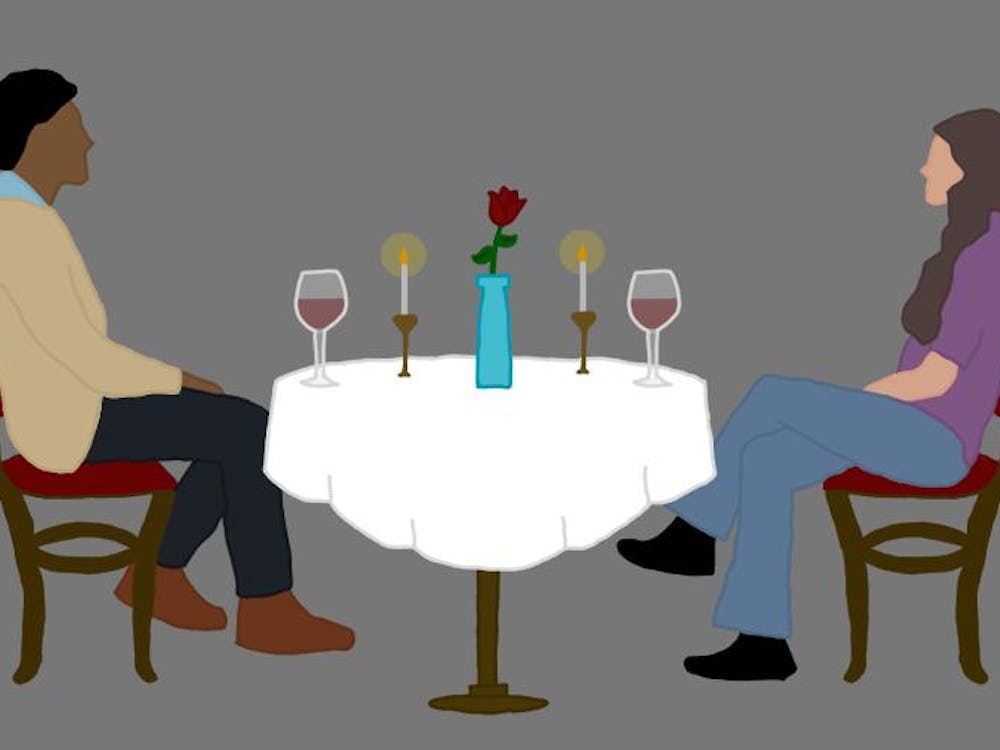Today marks the first election in which the vast majority of University studentshashad the opportunity to cast a vote.
First-time voters, a demographic with unpredictable voter turnout numbers, have been targeted through numerous efforts -- often nonpartisan -- urging them to head to the polls. Rapper P. Diddy has donned a "Vote or Die" T-shirt to help get the message across. MTV has worked to publicize its Rock the Vote campaign, whose Web site instructs young people to "Find three friends you think might NOT vote. Call, E-mail, Text -- Stalk them."
The desired effect?
The desired effect is "to make voting more mainstream," fourth-year College student Mike Wade said.
Whether or not this goal is achieved, efforts directed at young voters have not gone unnoticed.
"Obviously there has been a big push to get young people to vote, even more this year than in years past," Wade said. "I think there's a general consensus, especially among young people, that there's a lot more at stake this year."
A popular T-shirt emblazoned with the phrase "voting is for old people" was criticized in past months for what some interpreted as a negative message. Urban Outfitters, who originally sold the Vintage Vantage-made T-shirts, ultimately took them off the shelves.
According to third-year College student Kamaren Suwijn, however, this shirt was designed simply to stir up chatter.
"One of the things we were talking about in my media class is that we think in general that a lot of those shirts, while they are sarcastic ... that their purpose it to catch our attention and get us talking and really just ... to inspire more people to think about voting and those kinds issues," Suwijn said. "The more that Urban Outfitters is getting in trouble by producing this sort of T-shirt, the more attention it's getting, and the better effect it will have."
Wade saw the purpose of the T-shirt somewhat differently, but agreed that the message is meant to be read as a sarcastic statement.
It's an "irreverent attempt to kind of mock all these recent voting drives," Wade said. "People just took it the wrong way."
Still, Wade said he wasn't convinced that the publicity surrounding the shirt will make a significant impact on young voters.
"I don't know, I'd probably say that the general media is more effective," he said.
Wade cited the example of MTV visiting college campuses across the country. He said he believes the direct-contact approach works well.
"Having them on the campus, or having the Republicans at a NASCAR race trying to get people registered is more effective," Wade said.
Comedy Central, a television network that appeals to many young viewers, is home to Jon Stewart, star of "The Daily Show." Stewart has garnered much attention for his comedic news and political talk show as well as his vocal opinions. Although he has not directly targeted young people, Stewart has a strong following among many students.
This election season, some students said they looked to "The Daily Show" not just for entertainment, but also for information.
"I get a lot of my information from CNN and 'The Daily Show,' but I probably enjoy 'The Daily Show' more because it presents the information in a humorous way," third-year Commerce student Joe Scavongelli said. "I still find ['The Daily Show'] worthwhile though because I have other sources like CNN to get the facts, but then I like the spin 'The Daily Show' takes on that."
Wade agreed that Stewart's show has, to some extent, provided viewers with legitimate election coverage.
"He's got John Kerry on his show, John Edwards -- he hasn't had Bush on the show, but he's had Bush people -- so he's getting the players in this election," Wade said.
At the same time, students understand the limits of watching a show that often mocks the information it presents.
"I love 'The Daily Show,' but it still hasn't helped me decide who I'm voting for," third-year Commerce student Liz Carroll said. "I like the sarcastic position it takes because it's entertaining while slightly informal.You just can't really take it face value, though."
Although Carroll and others might tune into Stewart's comedic coverage purely for its entertainment value, others believe that "The Daily Show" has had real political impact.
"It gets people involved and reaches a crowd that isn't normally involved," third-year College student Billy Petersen said. "It's not just humor -- it promotes activism as well."
Fourth-year Engineering student Catherine Hovell expressed a similar sentiment: Something is better than nothing."The Daily Show" is "ultimately a good thing because it makes people more aware [of political issues]," Hovell said. First-year Architecture student Amanda Hubal agreed.
"Any approach that will get more people to vote is a great way to pursue politics," she said.
Apparently, Hubal isn't the only American who thinks this way. There have been quite a few creative approaches to get young people to vote this election season. Take votergasm.org, a Web site that plasters messages such as, "Voting is like making love to your country. Making love is, like, awesome," over photographs of sexy, half-naked bodies. The Web site invites voters to sign one of three possible pledges, which state that they will withhold sex from non-voters for a certain period of time following the election. Depending on how long they abstain from non-voter sex, and on whether they agree to have sex with a voter on election night, pledges may earn the title of Citizen, Patriot or American Hero.
"I kind of understand the reasoning [behind votergasm.org]," Suwijn said. "They know that anything sexualized gets young people's attention."
Wade also felt that efforts like votergasm.org played off many young people's prerogatives.
It's a "humorous attempt to make voting fun," he said. "Sort of like the people who make watching the debates a drinking game."
And while students were busy viewing such voter-friendly Web sites, the Internet attacked them in other ways.
"I notice a lot of pop-up ads on my computer that were worded specific ways, trying to get your opinion on who you'd vote for, like a smiley face next to Bush, or negative wording about a candidate's stance on some issue," third-year Commerce student Sarah Lysher said.
Although there has been a wealth of youth-targeted initiatives this election season, some students preferred to stay informed through more traditional sources.
"I spend most of my time basing my decisions on newspapers," third-year Commerce student Devin Battiston said. "I don't really pay attention to anything pop culture has to say, mostly because I'm a Republican and pop culture tends to be mostly liberal. I don't really care what movie stars or people like that say. I'd rather get my information from educated people where I can still get to hear both sides"






